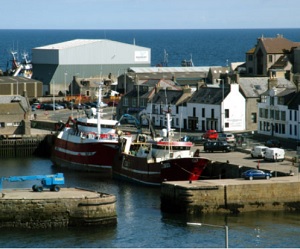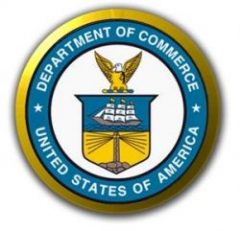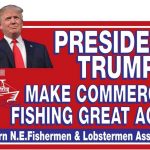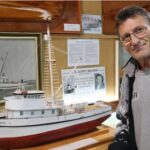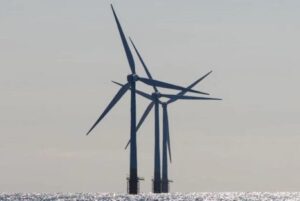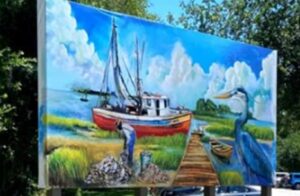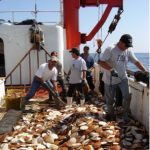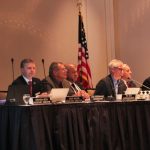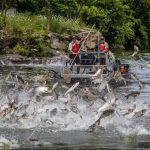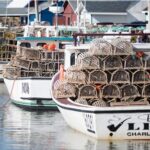Tag Archives: Fishermen
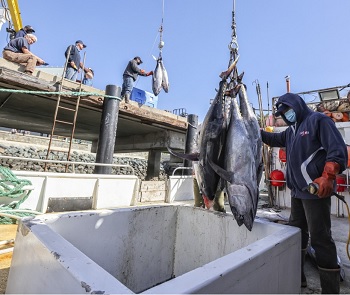
Selling Direct to the Public: What looked like disaster for Haworth Fish Co. has turned into new business
After a week at sea, Nick Haworth returned to port with 30,000 pounds of big eye tuna and opah aboard Kaylee H,,, Having been hundreds of miles offshore, the crew had not heard the news: On March 17, 2020, fearing a surge of coronavirus cases, the county health department shut down all indoor dining, instantly destroying the restaurant industry’s appetite for the fresh investment sitting on ice below deck in the fishing boat’s hold. “We had nowhere to sell our catch,,, photos, >click to read<,09:17
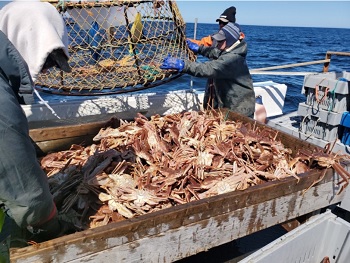
Good news for Newfoundland fishermen, plant workers, and processors in the snow crab fishery
The snow crab fishery should continue to be an economic bright spot for the Newfoundland and Labrador economy in 2021. The latest report from Fisheries and Oceans (DFO) science shows modest improvements in snow crab biomass in several fishing zones around the province. The good news from science is that the snow crab stocks appear to be recovering in some areas.,, Julia Pantin, DFO’s lead biologist for snow crab in the Newfoundland region, said the population of crabs becoming available to the fishery is expected to increase over the new two to four years in most areas. >click to read< 11:30
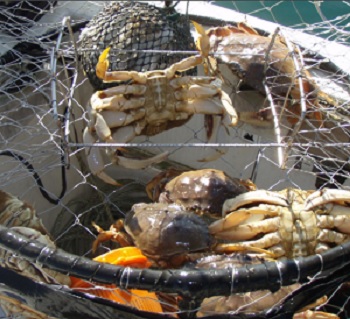
This Year’s Dungeness Crab Fishery a Shell of its Former Self
New regulations and price strikes delayed the start of the season. Dungeness crab fishermen face the worst catch numbers in decades. CDFW monitors for whales, and sea turtles and can delay or halt Dungeness crab commercial fishing if they determine that the risk of entanglement is high. That happened twice at the beginning of this season. The presence of humpback whales kept the fishermen out of the water from the originally scheduled start date of Nov. 15 until Dec. 23. Some fishermen, like Ben Platt, president of the California Coast Crab Association, worry that the new regulations will squeeze the season into a few months every year. Half Moon Bay-based fisherman Tim Obert agrees. “The Thanksgiving market’s huge for us,” he says. “The RAMP has taken that out.” >click to read< 21:10
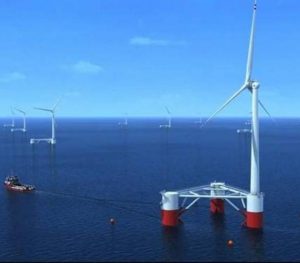
Maine Governor proposes offshore wind farm moratorium
Gov. Janet Mills on Monday proposed a 10 year moratorium (just say no!) on new offshore wind projects in state-managed waters and other actions aimed at calming concerns among the fishing industry about her plan to create the nation’s first floating offshore wind research farm in the Gulf of Maine. In a letter Friday to licensed commercial fishermen, the Democratic governor said she would propose the moratorium to the Legislature. >click to read< 12:38
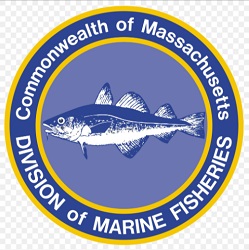
Massachusetts Launches ‘Ropeless’ Fishing Feasibility Study
The Massachusetts Division of Marine Fisheries (DMF) has launched a comprehensive scoping project to assess ‘ropeless’ fishing gear in the New England lobster fishery. A first of its kind on an accelerated timeline, the project will interview dozens of fishermen, technologists, policy experts, and scientists to fully evaluate the challenges and opportunities of the new gear type. The twelve-month project will evaluate fishing, legal, regulatory, technological challenges and opportunities of alternative lobster gear, which could reduce whale entanglements. >click to read< 12:47
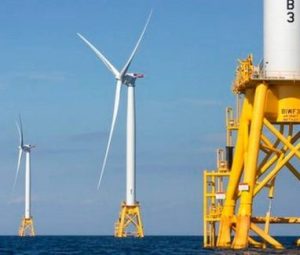
Renewables and unions: Biden rounds out energy Cabinet
President-elect Joe Biden closed out his Cabinet picks last week with the choice of Rhode Island Gov. Gina Raimondo (D) for Commerce secretary and Boston Mayor Marty Walsh for Labor secretary,,, Offshore wind insiders say Raimondo appears to be an answer to the growing friction between a burgeoning renewable sector and the fishermen who have long been the ocean’s dominant users.,, Raimondo would oversee NOAA Fisheries, a critical gatekeeper to the growing line of offshore wind projects awaiting approval from the incoming Biden government. >click to read< 17:08

Five Days Into Commercial Dungeness Season, Seafood Buyers, Fishermen Haggle Over Price
Though California’s commercial Dungeness season opened five days ago, Crescent City’s commercial fleet has yet to drop pots as fishermen and buyers haggle over price. Fishermen are asking for $3.25 per pound while Pacific Choice Seafoods, of Eureka, is offering $2.50 per pound, Rick Shepherd, Crescent City Commercial Fisherman’s Association,,, “Pacific Choice has stayed on $2.50 and the boats in Oregon and California have not accepted that offer,” Shepherd said, adding that fishermen continue to negotiate with buyers. >click to read< 07:07
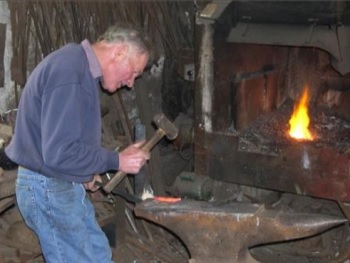
Warm tribute paid to an island’s legendary last blacksmith
The life and work of Calum “Steallag” MacLeod is remembered in An Gobha, The Last Blacksmith, which will screen on Hogmanay. It features footage of MacLeod, who died last year aged 84 and who was known for his hard work, kind spirit and great storytelling skills, being interviewed in his Stornoway smithy. There, he talks of a life at the forge and anvil with his skills first learned from his father, John, who shoed horses in the trenches during World War One. Between the two men, more than 100 years of service was given to island homes, crofters, fishermen and building businesses. >click to read< 09:12
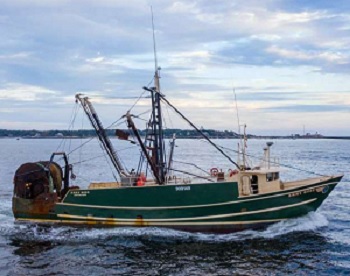
Fishing community, others respond to tragedy of lost Portland vessel
Two weeks since the sinking of a Portland fishing boat with all four crew seem to have little eased the loss for members of the maritime community and others. But businesses, fishermen and hundreds of individual donors are trying to help family members of the four men, three of whom were from Maine.,,, “The crew on the F/V Emmy Rose were honorable men. All were extremely passionate about the fishing industry, but most importantly, they loved and cared for their families more than anything in the world,” Rosalee Varian wrote. “These four men were the best out there. They will be deeply missed, but they will never be forgotten.” >click to read< 10:23
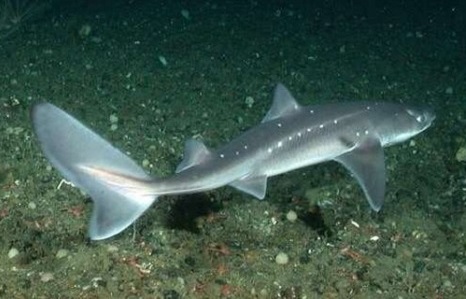
Spiny dogfish eat small Atlantic codfish! DNA may provide some answers
Conventional observations show that spiny dogfish in the western North Atlantic rarely eat Atlantic cod. However, some believe the rebuilding dogfish populations are limiting depleted cod numbers by competition or predation. To find out what is going on, NOAA Fisheries scientists looked to genetic testing to confirm cod presence in dogfish stomachs. >click to read< 13:10
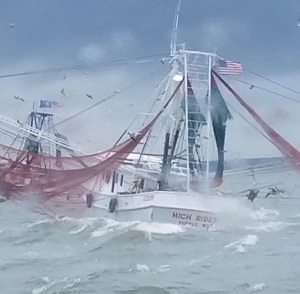
North Carolina shrimpers, fishermen concerned about mislabeled seafood
While brown shrimp, the most abundant of North Carolina’s shrimp landings, are typically harvested in the summer, now is the time for the whites, or green tails. “They are sweeter,” said Corey Galloway, with High Rider. “And when the water cools they are even better.” For Galloway, fall and winter weather improves a lot of local seafood. Breece Gahl of Fresh2U Seafood in Wrightsville Beach, for example, is looking forward to the wild oyster season, which begins Oct. 15. Until the pandemic, he often supplied seafood to restaurants. Earlier this year, Gahl switched to a “shore to door” delivery service and has been a regular at local farmers markets,, Pandemic related concerns aren’t at the forefront for this industry, though. Local shrimpers and fishermen are instead still being challenged by ongoing issues. >click to read< 07:35
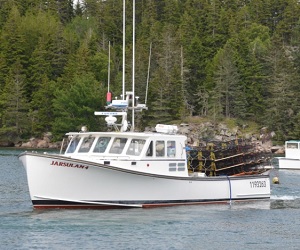
CARES Act: Lobstermen may get up to $50 million in pandemic relief funds
Whatever the relationship between China and the United States — particularly the lobster industry — may be, Maine lobstermen are certainly living in interesting times. Last week, a scant two months before the upcoming presidential election, the U.S. Department of Agriculture announced that it  would soon release some $530 million appropriated by Congress last March under the CARES Act to assist the U.S. seafood industry and fishermen damaged by retaliatory tariffs. Those tariffs have been imposed primarily by China and the European Union on imports of U.S. live and processed seafood. >click to read< 16:58
would soon release some $530 million appropriated by Congress last March under the CARES Act to assist the U.S. seafood industry and fishermen damaged by retaliatory tariffs. Those tariffs have been imposed primarily by China and the European Union on imports of U.S. live and processed seafood. >click to read< 16:58
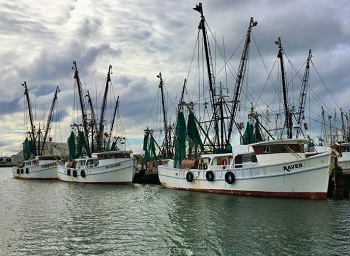
Florida fisheries wait for federal aid as prices take a deep dive – fisheries across the nation have experienced steep sales decline
Federal officials Wednesday defended the delay in releasing $300 million on fisheries assistance funding, including $23.4 million for Florida, saying the pandemic has set them behind in analyzing data to determine how much each fishery is due. Senators on the Commerce, Science, & Transportation Committee urged faster action to offset the impacts of COVID-19 on the seafood industry. Committee Chairman Sen. Roger Wicker, R-Miss., noted that fisheries across the nation have experienced up to a 90 percent decline in sales.,, In May, the CARES Act allocated $300 million for fisheries assistance funding. Florida received $23,447,815, according to the Atlantic States Marine Fisheries Commission. However, the National Oceanic and Atmospheric Administration has not approved the state’s plan. >click to read< 13:03
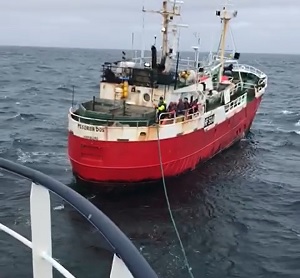
Spanish F/V Pesorsa Dos detained in Irish waters and escorted to Killybegs
The F/V Pesorsa Dos was detained by the Irish Naval Service for alleged breaches to fishing regulations in Irish waters around 25 miles off Malin Head on Friday. She arrived at Killybegs on Tuesday morning after it had taken a few days to recover all of her gear. The Spanish owned gill-netter stands accused of attempting to foul the propeller of the local trawler F/V Alison Kay at the end of June during a confrontation 30 miles to the west of Shetland. At the time fishermen shared a number of video clips showing the incident,,, >click to read< 15:50
With demands for an investigation, Skipper describes how local boats are pushed out of fishing grounds – >click to read<
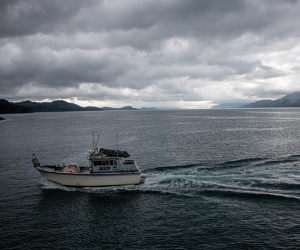
Harvesters remain resilient in facing economic challenges of Coronavirus
No one reading this needs to be reminded that we are in uncharted waters as thousands of Alaska fishermen set out to sea for the salmon season. As a fisherman with two young boys, I felt a deep sense of both privilege and responsibility as I set my nets in the glacier-fed waters of Taku Inlet in late June. Most fishing seasons the biggest questions are: Will the salmon come early or late? Will they be swimming deep or along the shoreline? This summer the questions are: Will Alaska’s independent fishermen financially survive the coronavirus? Will there be buyers willing to pay a decent price for their catch? Will fishermen get access to the personal protective equipment and testing that they need to avoid the spread of coronavirus? Will the long-fought Pebble mine be permitted while Bristol Bay’s fishing fleet is out risking their lives? By Tyson Fick >click to read< 14:47
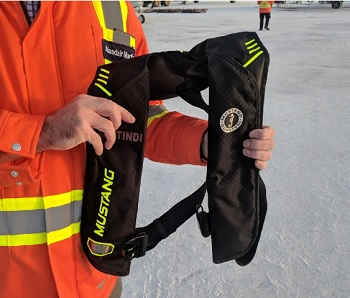
Transportation Safety Board says ‘countless’ reports show fishermen need to wear PFDs, use EPIRB emergency beacons
Transportation Safety Board of Canada (TSB) investigator Chris Morrow said it has concluded many times that fishermen need to wear personal flotation devices (PFDs) and they have to have emergency beacons on board. He said the investigation into the capsizing of the Ocean Star II lobster  boat found those to be consistent issues. An emergency beacon, known as an electronic position indicating radio beacon or EPIRB, might not have helped the crew aboard the Ocean Star II, but Morrow said they were in the water a long time without PFDs.,, On May 5, 2018, > Richard Moreau and Liz O’Connell <drowned after their small crabbing boat capsized near Port Medway, N.S. >click to read< 14:40
boat found those to be consistent issues. An emergency beacon, known as an electronic position indicating radio beacon or EPIRB, might not have helped the crew aboard the Ocean Star II, but Morrow said they were in the water a long time without PFDs.,, On May 5, 2018, > Richard Moreau and Liz O’Connell <drowned after their small crabbing boat capsized near Port Medway, N.S. >click to read< 14:40

Memorandum on Protecting the United States Lobster Industry
Protecting the United States Lobster Industry By the authority vested in me as President by the Constitution and the laws of the United States of America, it is hereby ordered as follows: Section 1. Policy. On May 22, 2018, the United States Trade Representative (Trade Representative) concluded an investigation under section 301 of the Trade Act of 1974, as amended (19 U.S.C. 2411), finding that China had engaged in multiple unreasonable and discriminatory trade practices that had harmed American intellectual property rights, innovation, and technology development. In response to China’s unfair and unreasonable conduct, the United States imposed tariffs on several categories of Chinese products. Rather than reform its practices, China responded to the Trade Representative’s findings with unjust retaliatory tariffs designed strategically to inflict financial harm on America’s farmers, fishermen, and workers in other industries. >click to read< 10:02
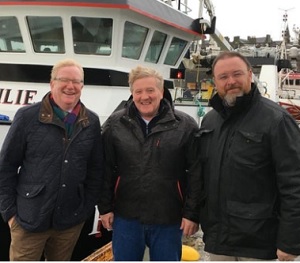
Fraserburgh nets host of honours at annual awards
Fishermen and businesses from Fraserburgh and Macduff were among those recognised in the 2020 Fishing News awards for the UK and Ireland. A presentation ceremony scheduled for May 14 was cancelled due to the COVID-19 pandemic and the winners were instead announced online. David Milne, skipper of the Fraserburgh-registered Faithlie, was the winner in the demersal fisherman category. The award for fish processor went to Fraserburgh-based Whitelink Seafoods. Established by James and Marie Sutherland in 1974 in the garage at the back of their house, the company has grown over the years into one of the leading processors in north-east Scotland, now employing 180 people. >click to read< 13:40
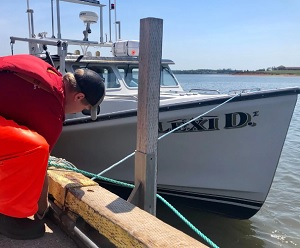
Lower prices, reduced markets ‘doesn’t make for good math’ – P.E.I. fishermen ask for four day season extension
The P.E.I. Fishermen’s Association (PEIFA) has asked for a four-day extension to the spring lobster season. The PEIFA made the request to the federal fisheries minister and the Department of Fisheries and Oceans (DFO) on June 16 to help offset the delayed start to the season. The season started two weeks late because of coronavirus and concerns over the safety of crews on boats, and questions over the demand and markets for lobster. According to the P.E.I. Lobster Marketing Board, about 200 fishermen have been dealing with quotas for most of the season, and prices are down substantially this year — most fishermen have been getting between $3.50 and $4.50 a pound for their catch. >click to read< 21:57

With demands for an investigation, Skipper describes how local boats are pushed out of fishing grounds
James Anderson said the 27 metre long German-registered fishing boat Pesorsa Dos could have caused serious damage to the Alison Kay had she been successful in her alleged attempts of running a line through the Alison Kay’s propeller during an incident off the west coast of Shetland last week. Video footage of the confrontation was widely shared by fishermen on social media and picked up by a number of news organisations. The Maritime and Coastguard Agency has been informed. Politicians and fishermen’s organisations have called for an investigation to be conducted. >click to read< 08:12

Fishermen post shocking video footage of ‘intolerable’ behaviour
Fishermen have described the conduct of Spanish gill-netters to the northwest of Shetland as “intolerable” after video footage was posted on social media showing a Spanish gill-netter allegedly attempting to run a rope through the propeller of a local whitefish trawler. This latest video evidence takes the ongoing skirmishes over access to fishing grounds to a new level and highlights why the local fishing industry is so keen to leave the European Union, and with it the Common Fisheries Policy (CFP). The battle between Spanish gill-netters and local trawler men has been ongoing for a long time with most local whitefish boats reporting over the years that they have been at the receiving end of attempts to drive them out of their traditional fishing grounds. >Video, click to read< 14:46
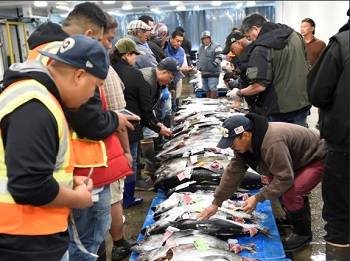
Coronavirus: Hawaii Fishermen Are Stuck In Port As Federal Aid Falls Short
With tourism all but shut down due to Hawaii Gov. David Ige’s 14-day quarantine and restaurant service reduced to takeout for social distancing purposes, there’s less demand for fish. Prices have dwindled to the point where going out on the water can be more expensive for fishermen than the price of the catch coming in. State and federal governments have done little to help out, despite the fact that fish are a critical source of protein for the islands’ residents. “We are the largest food producing industry in the state by a tremendous margin,” said Michael Goto, who’s the auction manager for United Fishing Agency in Honolulu. “If we saw a complete shutdown of fishing effort that would be devastating.” >click to read< 16:23
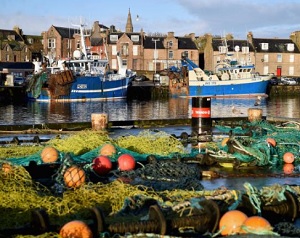
Want to start eating Scottish fish? Here are the best places to start
If Scotland really does have such fabulous seafood, why do ordinary citizens find it so hard to tap into this much eulogised catch? The problem has been that subsequent governments have fixated on international exports, not food for citizens. Farmed salmon has been the apple of their eye, even though its production has proved, to my mind, to be an environmental catastrophe for our west coast. Premium shellfish, brown crab to China, scallops to Italy, langoustines to Spain, has also been despatched abroad as soon as it was landed.,,, Enter coronavirus. Restaurant orders stopped overnight, export chains broke down. But instead of tying up boats and facing financial ruin, some determined fishermen, operating smaller boats closer to shore, have started exploring local markets,,, >click to read< 12:10
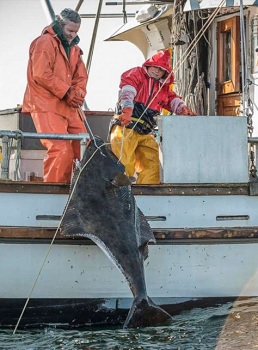
Fishermen, farmers suffering from food supply disruptions concerned for what’s to come
As the coronavirus has spread through the U.S. over the last two months, it has dealt a significant blow to the country’s food supply chain and driven the price of products down so much that those who source them aren’t sure if they’ll get a return on the time and money they’ve invested over the last year. Many are now concerned about what the rest of the year will look like and what it means for the foods they grow. For some fishermen, however, the risk of losing money is too high. California’s commercial salmon season began on Friday, but Mike Conroy, executive director of the Pacific Coast Federation of Fishermen’s Associations, says that with the markets “upended” and 75% of California salmon purchased by restaurants, many fishermen might not go through the trouble of fishing. >click to read< 09:16
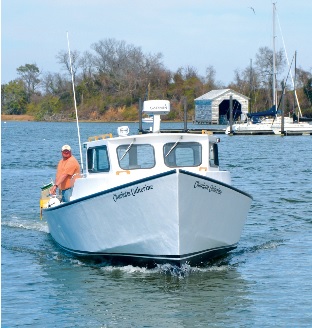
Father and son continue the Tilghman Island boatbuilding tradition
John C. Kinnamon Sr. and his son J.C., of Tilghman Island, Maryland are steadily turning out fiberglass-over-wood Chesapeake Bay deadrise workboats for Maryland and Virginia commercial fisherman. The Kinnamons are native Tilghman Islanders. Their lives as professional boatbuilders are strongly tied to their growing-up years, when commercial fishing and boatbuilding were vital to island life. They each own commercial fishing boats and work in Maryland’s blue crab trotline fishery. J.C., with the help of his father, builds about four new glass-over-wood deadrise workboats a year. With knowledge that comes from first-hand experience, the Kinnamons have clear insight into what a Chesapeake Bay waterman wants and needs in a workboat. >click to read< 10:20
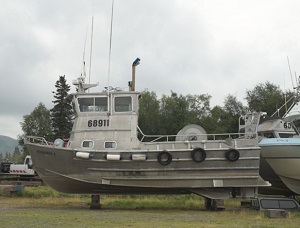
Coronavirus: Bristol Bay community leaders lay out minimum protocol needed to allow salmon season
Leaders of several major community organizations in Bristol Bay have issued a list of minimum protocols they expect to be in place before the commercial salmon fishery can take place this summer. Among other the protocol listed, fishermen and other seasonal workers would undergo a physical exam including a COVID-19 test with a negative result no more than 48 hours before traveling to the region. After arriving in Bristol Bay, the individuals would be transported to a quarantine location and remain in quarantine until a follow-up negative COVID-19 test is confirmed. The leaders listed out other expectations, including weekly health screenings, for the seafood industry to establish as minimum protocol for the 2020 season. >click to read< 11:12
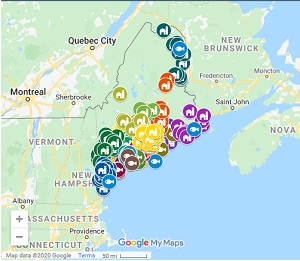
Maine farmers, fishermen find new ways to keep selling products safely
As businesses struggle to stay afloat and keep serving customers, farmers and fishermen are finding ways to keep up selling their products safely. A farmer launched an online initiative and now there is one site with more than 300 farmers, fishermen and other producers all on one interactive map. Click on any of the icons for each business to get details on how to buy products and how to get it. >click to read and use the interactive map for names and locations.< It should continue expanding beyond the region! 15:05

Debut novel set in Bristol Bay delivers generations of women’s storytelling
Mia Heavener, now living in Anchorage, grew up fishing in Bristol Bay, where she absorbed stories her mother and other women told between tides and over tea. Her lovely debut novel set in a village near Dillingham, “Under Nushagak Bluff,” draws upon those stories and her own knowledge of the region, its history, its Yup’ik people, and the fishermen and cannery workers who came and went with the salmon runs. It is a compelling narrative, rich in its evocations of a time and place largely unrepresented in our literature — and a welcome addition to it. The novel begins with a voice. Someone — it’s a while before readers will figure out who it belongs to — is sitting in a skiff on a sandbar, waiting for the tide to come in. “My girl, I’m sorry,” she says. “I’ll start with that.” And she begins to talk, with a story “that could be told by the shape of the beach we just left. It is years before me. And it begins with a storm …” >click to read< 19:19






